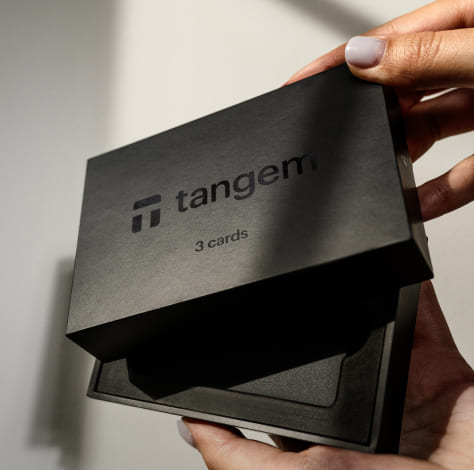
There’s a growing need for crypto inheritance planning as more individuals invest in digital assets. Without proper planning, your crypto holdings could be lost or inaccessible, leaving your loved ones at a disadvantage. Developing a strategy ensures that your family’s digital legacy is preserved and easily transferable. By taking steps now, you can provide peace of mind and safeguard your assets for future generations. Understanding the risks and benefits of this planning is crucial to securing your family’s financial future.
Understanding Digital Assets
The understanding of digital assets is crucial in today’s technologically driven world. With the growing prevalence of cryptocurrency and other online assets, individuals must recognize what constitutes a digital asset and how it can impact their estate planning. Digital assets can be broadly categorized into different types, each with its unique characteristics and implications for inheritance planning.
Types of Digital Assets
Assets include a variety of forms, from financial platforms to creative works. The following table delineates the primary types of digital assets:
| Cryptocurrency | Bitcoin, Ethereum, and other digital currencies. |
| Social Media Accounts | Facebook, Twitter, Instagram accounts. |
| Digital Files | Photos, videos, documents stored online. |
| Online Services | Digital subscriptions, cloud storage services. |
| Domain Names | Registered internet addresses and associated assets. |
This broad spectrum of digital assets necessitates careful categorization and management to secure family legacies.
Importance of Digital Asset Management
Digital asset management is vital for ensuring that one’s digital footprint is protected and effectively transferred to heirs. Often overlooked, these assets can hold significant financial value and emotional connection. Without proper planning, the loss of access or unawareness of these assets can lead to an unnecessary void in inheritance and preservation of family legacy.
Management of digital assets requires individuals to compile a comprehensive inventory, including passwords and recovery information, to ensure heirs can access these assets seamlessly. Failure to do so can result in permanent loss of wealth and connection to personal histories embedded in digital forms. Establishing a clear framework for the secure transfer of these assets is imperative.
Legal Framework for Crypto Inheritance
There’s a growing need for a structured legal framework as more individuals hold digital assets. Many jurisdictions are still adapting their laws to encompass cryptocurrencies and other digital holdings, leading to a patchwork of regulations that can create confusion for heirs. Establishing clear legal documentation can help prevent disputes and ensure that digital assets are transferred seamlessly to beneficiaries.
Incorporating digital assets into estate plans is increasingly important, given the volatility and unique nature of these investments. The legal landscape is evolving, but having a comprehensive plan that includes cryptocurrencies, NFTs, and other digital assets can safeguard an individual’s wealth for future generations.
Wills and Trusts for Digital Assets
Above all, integrating digital assets into existing wills and trusts is vital for effective inheritance planning. Traditional estate planning methods can be adapted to include cryptocurrencies by specifying how and to whom these assets should be transferred upon death. Failure to mention digital assets can result in unintended consequences, potentially leaving heirs with no access to valuable holdings.
Moreover, creating a separate trust dedicated to digital assets can provide additional protection and management strategies. This approach can help bypass probate and enable a smoother transition of cryptocurrencies to beneficiaries, safeguarding their financial future while keeping assets private and reducing administrative burdens.
Tax Implications
For those dealing with crypto inheritance, understanding tax implications is vital. Cryptocurrencies are considered property by the IRS, meaning that heirs may incur capital gains taxes when they sell inherited digital assets. The cost basis of these assets can hinge on their value at the time of the original owner’s passing, which can complicate tax scenarios for beneficiaries.
Wills should include specific clauses addressing tax matters related to crypto inheritance, as failing to do so can lead to unexpected tax liabilities. Planning ahead can mitigate challenging tax situations and help heirs navigate their new financial responsibilities more effectively.
Choosing the Right Security Measures
Now, selecting appropriate security measures is important for safeguarding your crypto inheritance. With the growing popularity of digital currencies, understanding how to protect these assets ensures that your family can access and benefit from them in the future. Different wallet options and access control strategies can provide varying levels of security, so it’s vital to evaluate your specific needs and circumstances.
Wallet Options
Any individual serious about crypto inheritance must consider various wallet options available in the market. Hardware wallets, for instance, offer offline storage, minimizing risks from online threats, while software wallets provide more convenience for everyday transactions. Each option has its advantages and disadvantages; thus, thoroughly researching and identifying which type aligns with your family’s needs is important.
Access Control Strategies
Before finalizing your security measures, establishing effective access control strategies is necessary for protecting your crypto assets. Implementing a tiered approach, where you designate trusted individuals within your family to manage different access levels, can safeguard your digital legacy. Setting up multi-signature wallets or incorporating biometric authentication adds an extra layer of security, ensuring that only authorized users can access the assets.
Wallet security is paramount in preventing unauthorized access to your crypto assets. Utilizing multi-factor authentication further enhances safety, while keeping recovery phrases stored in secure, offline locations reduces the risk of hacks. A well-thought-out access control strategy ensures that family members can efficiently manage and claim their digital legacy without unnecessary complications.
Creating a Crypto Inheritance Plan
Your crypto inheritance plan is vital in ensuring that your digital assets are passed on to your heirs securely. This process involves outlining the specifics of your holdings, including wallet addresses, private keys, and any exchanges where your assets are stored. Without a clear plan, your family could face significant challenges accessing these assets, which may lead to financial losses or, at worst, complete forfeiture of your holdings.
Your loved ones should be adequately informed about your crypto assets. Documentation is vital; create a comprehensive guide detailing how to access your wallets and exchanges. It is also important to discuss your plans with your heirs, as open communication can help them understand the importance of these assets and how to manage them in the future.
Documentation and Communication
An effective inheritance plan requires thorough documentation of your digital assets along with clear instructions for your beneficiaries. This can include a written guide stored securely with your important documents, detailing the location of your wallet keys and any necessary software for accessing your cryptocurrencies. Ensure that your heirs understand the significance of these details, as they are the keys to your digital legacy.
An additional step is to have regular conversations with your family about your crypto investments and plans for the future. Clear communication can demystify the complexities surrounding cryptocurrencies, so your heirs feel empowered and informed when the time comes to execute your plan.
Appointing a Digital Executor
Digital executors play a vital role in managing and distributing your crypto assets after your passing. They should have the technical understanding and trustworthiness to execute your wishes effectively, ensuring that your digital legacy is preserved. Choosing an individual with a sound knowledge of cryptocurrencies will help mitigate risks associated with executors who may not be familiar with the intricacies of digital assets.
Crypto assets often come with unique challenges, so appointing an executor who understands the technology can significantly ease the inheritance process. This individual should also be made aware of the potential dangers involved, such as safeguarding sensitive information and avoiding scams as they navigate the transfer of your digital inheritance. Clarity on their responsibilities and access will ensure that your family can manage and benefit from your crypto legacy without unnecessary hurdles.
Tools for Managing Your Digital Legacy
Keep your family’s digital assets secure by utilizing various tools designed for effective inheritance planning. These tools not only simplify the process of organizing crypto wallets but also ensure that your loved ones can access your digital assets when needed. By leveraging advanced software solutions, you can create a solid framework for managing your crypto inheritance.
Software Solutions
For managing your digital legacy, several software solutions can help streamline the process. These applications allow you to securely store private keys, passwords, and important documentation related to your cryptocurrencies. Many come with built-in features like encryption and backup options, providing an extra layer of protection for your assets.
Online Services
About online services, various platforms exist that specialize in digital legacy management. These services often include features such as safe storage of sensitive information and instructions for heirs on accessing accounts. Using these services can mitigate the risks of losing valuable digital assets due to unforeseen circumstances.
Plus, online services can enable multi-factor authentication and secure sharing options, ensuring that your digital legacy is not only accessible but also protected against unauthorized access. Be aware of the potential risks of relying too heavily on a single platform, as they may face security breaches. However, with diligent planning and the right tools, you can confidently lay the groundwork for your family’s future.
Common Mistakes to Avoid
Unlike traditional assets, cryptocurrencies require careful planning to ensure their transfer to heirs. Many individuals mistakenly overlook this aspect, thinking that their digital assets will automatically be passed on or can be easily accessed by their loved ones. Inadequate planning can lead to significant losses, as family members may struggle to locate or access digital wallets without proper guidance.
Lack of Planning
For those who assume that their crypto holdings are safely secured simply because they exist, this can lead to devastating outcomes for their beneficiaries. Without a detailed inheritance plan outlining how to access, manage, and transfer these assets, heirs may find themselves at a loss. Failing to create a comprehensive plan results in uncertainty, leaving loved ones to navigate complex technologies and potentially irretrievable assets.
Failing to Update Your Plan
One of the most overlooked aspects of inheritance planning is the need to regularly update the plan as circumstances change. Changes in personal situations, such as marriages, divorces, or the acquisition of new assets, necessitate revisions to ensure that the plan remains relevant and effective. Additionally, the crypto landscape itself is constantly evolving, and failing to adapt your plan to reflect these changes can jeopardize your family’s digital legacy.
In fact, neglecting to update your plan can result in asset distribution that does not align with your current wishes or circumstances. This can lead to conflicts among family members or unintended beneficiaries accessing your assets, undermining your intent. Regularly reviewing and adjusting your inheritance plan is crucial to safeguarding your digital legacy and ensuring your family benefits from your foresight.
Final Words
As a reminder, establishing a comprehensive crypto inheritance plan is imperative for ensuring that your digital assets are passed on safely and effectively to your loved ones. With the increasing value and complexity of cryptocurrencies, taking the necessary steps to secure your family’s financial future is more important than ever. By clearly documenting your assets, access information, and intentions, you can provide peace of mind and avoid potential disputes or confusion regarding your digital legacy.
Planning ahead for the transfer of your crypto assets not only safeguards your investments but also promotes family cohesion during difficult times. Engage with legal and financial experts who understand the intricacies of digital currency, and explore options available to protect and facilitate the smooth transfer of your digital estate. Taking these steps now will ensure that your loved ones are well-prepared to handle their inheritance in the dynamic world of cryptocurrency.






